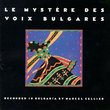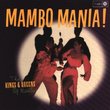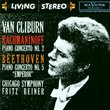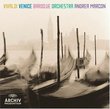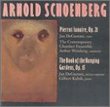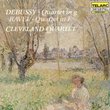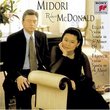| All Artists: Mozart, Jurinac, Loeffler, Vopo, Scherchen Title: Requiem Members Wishing: 0 Total Copies: 0 Label: Polygram Records Release Date: 6/12/2001 Genre: Classical Styles: Opera & Classical Vocal, Historical Periods, Classical (c.1770-1830), Early Music, Modern, 20th, & 21st Century Number of Discs: 1 SwapaCD Credits: 1 UPC: 028947120124 |
Search - Mozart, Jurinac, Loeffler :: Requiem
CD DetailsSimilarly Requested CDs |
CD ReviewsScherchen's Moving Mozart Requiem Jeffrey Lipscomb | Sacramento, CA United States | 06/12/2005 (5 out of 5 stars) "I have little objectivity when it comes to this magisterial Scherchen account of Mozart's Requiem. My first versions on LP in the 1970's were Bruno Walter's and Sir Thomas Beecham's (the former now on Sony CD and the latter available as a Sony CD import). Both were rather poorly recorded (especially Beecham's), but both conductors then enjoyed huge reputations as eminent Mozarteans. Then, quite by chance in a used LP store, I picked up this 1958 stereo Scherchen account on a cheap 2-LP set from ABC Music Guild (a re-issue of the Westminster original). Who on earth was Scherchen? I soon found out, and Beecham and Walter soon became history. And thus began a personal love affair with the music making of this quixotic conductor that has persisted ever since. This is not a performance that will appeal to every taste. It is slower than most, and there are no concessions whatsoever to Historically Informed Performance (HIP) practices. So know ye that I am not the least bit HIP - I rejoice in being a resolute square when it comes to music making like this, drenched as it is in devotion, passion and sincerity. True, it does not move very fast, but it is VERY moving. The choral work is ineffably beautiful, the soloists are all satisfying, and the recorded sound is more than adequate (DG Westminster's transfer is a tad veiled compared to my LPs, but such is often the case when comparing CDs with good quality LP originals). My only genuine complaint: the 4 Motets that were included in the LP set are omitted here. Those were NOT conducted by Scherchen, but by one of his finest peers from that era - Rene Leibowitz - and they included the loveliest Ave Verum Corpus it has ever been my pleasure to hear. To my taste, the ONLY Mozart Requiem that rivals this one is Scherchen's earlier 1953 account (mono Westminster LP), with the superb quartet of Magda Lazlo, Hilda Rossl-Majdan, Petre Muntenau and Richard Standen. Perhaps a shade livelier, but in duller sound. Hopefully it too will be resurrected on CD but, in truth, I still prefer this later one. Needless to say, I keep them both. Highest recommendation. Jeff Lipscomb " Unique Mozart Scott D. Harris | 06/22/2004 (5 out of 5 stars) "This isn't a grand, perfect Karajan creation, or a witty and speedy Gardiner, but there is more human essence here than in any other recording of the Requiem I have heard. The music here flows and breathes, by means of flexible tempos and phrasing, a hallmark of Scherchen. Many look at this conductor and frown at his moody tempos, often at extremes, and sometimes odd ways of doing things. Some fail to see, or do not prefer, that this was all a means of getting a certain life to the music, that it wasn't a time chained, perfected piece (such as Karajan) but an animal, creation, and expression of the composer. More than most else, Mozart was a composer who, through his music, spoke about what it was like to be human. And in no other recording I have heard does a life, and its end, speak more clearly than in this Requiem. There might be "better" performances out there, but I doubt you will find any more "great" performances." Different Requiem Scott D. Harris | Chattanooga, TN | 11/07/2002 (4 out of 5 stars) "This recording of Mozart's Requiem is certainly in a class by itself in the catalog, in many ways. Scherchen begins with very slow tempi and it might take some listening to get used to his style if you first grew to like to music on a HIP performance. Scherchen's Requiem, in my opinion, becomes greatly enjoyable after repeated hearings. But make no mistake, this is a moving performance - you just have to forget any pre-conceived notions about the piece and allow yourself ample time. I think it is one of the most spiritual performances available. I often wonder if Scherchen had a personal connection to this piece.A word about the sound - this is an early stereo recording and I have noticed discernable differences depending on what type of system you use. The remastering is very good, but there is not the palpable sonic impact of stereo recordings of even a few years later. Nevertheless, Westminster's engineers have captured a great deal of hall ambience and the sound is full bodied, even if is does suffer from a lack of dynamic range."
|


 Track Listings (14) - Disc #1
Track Listings (14) - Disc #1